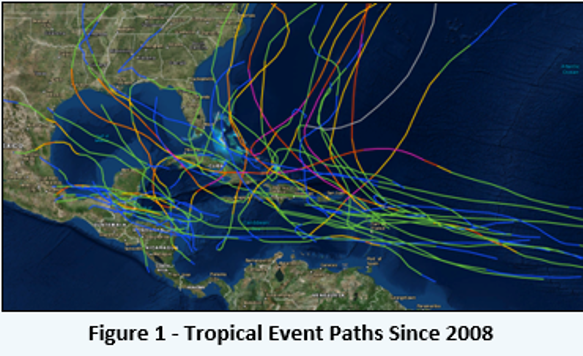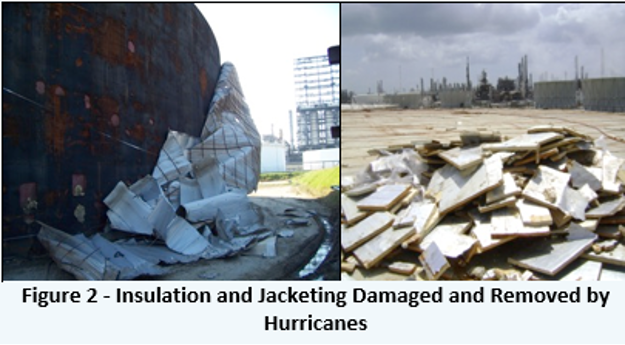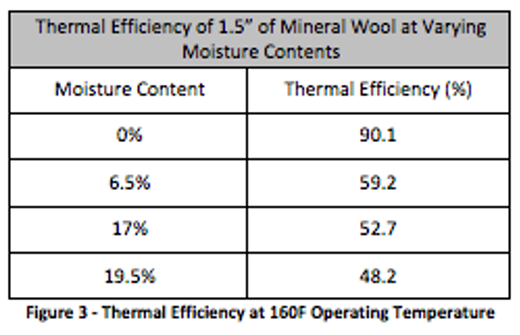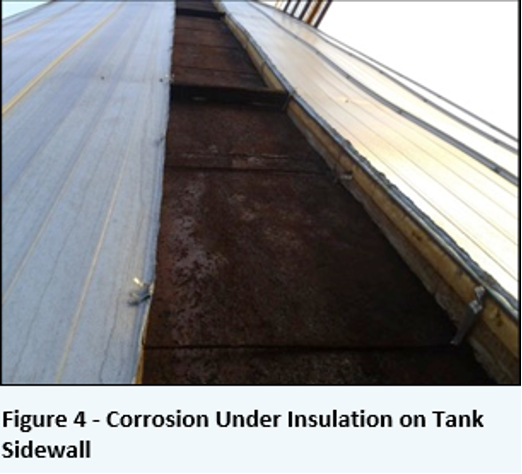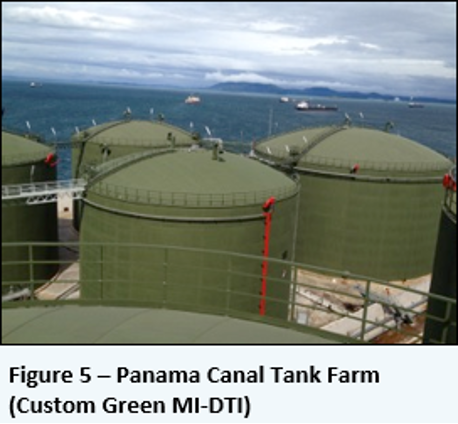Choosing the Right Insulation for the Storm: The Investment You Should Only Make Once
In our 25 years of providing specifications and consultations to end users and engineering firms globally, we have found that there are optimal applications for all types of insulation materials. With this approach, we strive to recommend the best solution that meets the customer's needs, regardless if it is our product or not. Mascoat Industrial-DTI is an excellent option in the areas prone to storms due to the many challenging factors that those regions face. Problems like recurring severe weather events, high average rainfall totals, and average to high humidity lead to escalating maintenance costs year after year. By using Mascoat Industrial-DTI thermal insulating coating, companies can have an insulation solution that is not affected by those issues, resulting in a lifelong return on investment.
An issue that affects these facilities annually is the threat of tropical events, i.e., tropical storms, depressions, and hurricanes. Due to the installation nature of most conventional insulation systems, high winds and driving rain can be debilitating to the integrity of insulation in tank farms, refineries, and other industrial facilities found in the region. The high winds associated with these storms can damage, if not outright remove, the jacketing designed to hold and protect the traditional insulation material. Once damaged, the insulation and substrate become even more exposed to the driving rains and high moisture environment.
Mascoat Industrial-DTI adheres directly to the primed substrate, and that would need a +250 psi[1] pull to remove it from the surface. Damage from debris would be limited as well. Though the coating is pliable (which is necessary when dealing with thermal expansion and contraction) and susceptible to mechanical damage, only the point of impact is affected. Fortunately, the damage is easily repaired and moisture cannot spread outside of that area. With something like mineral wool, a small damaged area can lead to wicking where moisture spreads from the point of impact to areas that appear unaffected. The moisture trapped in the insulation material will eventually lead to a significant CUI (corrosion under insulation) problem, but it will also cause an instant performance reduction in the thermal properties of the product.
When water is absorbed by conventional insulation systems, it reduces its overall effectiveness because moisture conducts heat more efficiently than air. As shown here, a small amount of moisture causes a significant drop in thermal efficiency. Also, as operating temperature increases, the negative effects of moisture increase as well. Things like molten sulfur, slurry, and asphalt emulsions stored in the +200°F range will see a larger drop in thermal efficiency once moisture is added. Though Mascoat Industrial-DTI's thermal efficiency is lower (specifically at lower operating temperatures), the ability to have a consistent performance value for the life of the product and/or piece of equipment allows for peace of mind. Additionally, at Mascoat, we provide our customers with thermal analysis reports detailing the estimated thermal performance value specific to the customer's parameters (i.e., ambient conditions, content temperature, wind, etc.).
The side effect of moisture is not only a reduced thermal performance value. Facilities around the world deal with corrosion under insulation, not just the tropics. However, when you add these tropical events, it leads to a much higher potential for damage. By eliminating the ability for moisture to get behind the insulating material, Mascoat Industrial-DTI eliminates the risk of corrosion under insulation. There are Mascoat applications over 15 years old that show no signs of degradation (both thermally and mechanically). As a coating, Mascoat Industrial-DTI seamlessly bonds to complex substrates with no need for high-cost custom fabrication. These extrusions, tank roof vents, supports, etc., are typically the ingress points for moisture. Due to the wicking nature of products like mineral wool and calcium silicate mentioned earlier, these smaller entry points will ultimately affect a much larger area.
At Mascoat, we promote our entire line of insulating coatings where it is in the best interest of the customer. With the specific issues that the storm-prone areas face, Mascoat Industrial-DTI can help oil refineries, tank farms, sugar mills, paper mills, and many of the other manufacturing facilities in this region with an insulation solution that actively protects a facility's assets for many years to come.
[1] In terms of wind speed and psi, a 150 MPH wind has approximately 0.402 psi, so the coating is very resistant to high winds.
When you subscribe to the blog, we will send you an e-mail when there are new updates on the site so you wouldn't miss them.
